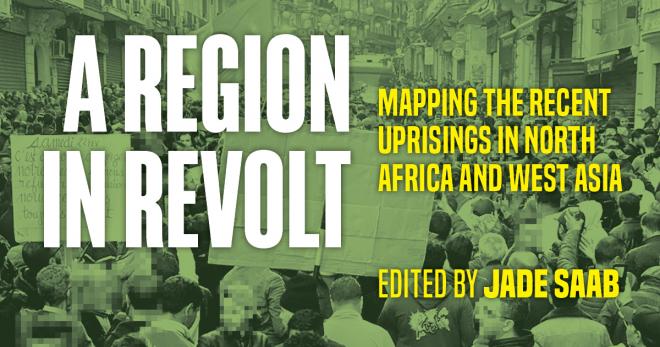|
|
|
Repoliticising antiracism struggles — reflections on collectivity and solidarity. 2020 has seen antiracism movements gain momentum and push back against institutionalised racism. However, despite the progress made, individualism and fragmentation continue to undermine solidarity and to depoliticise antiracism struggles.
Dear reader,
First of all, TNI is excited to announce that the People's Vote for the Transformative Cities Award 2020 is now open! Vote for you favourite initiatives in the following categories: food, water, housing, and energy.
You can cast your vote until 16 November, by doing so you help to promote transformative practices around the world that deserve more global attention. You will help to highlight the interventions that show us how access to basic rights can be guaranteed even during the times of COVID-19.
|
|
|
|
|
|
|
|
2020 has seen antiracism movements gain momentum and push back against institutionalised racism. However, despite the progress made, individualism and fragmentation continue to undermine solidarity and to depoliticise antiracism struggles. This paper explores how we can move towards an antiracist horizon by repoliticising antiracism struggles, analysing the function of racism and organizing collectively against the structures that underpin it, and understanding antiracism as a pillar for the emancipation of the dispossessed.
Read more
|
|
|
|
|
|
|
|
|
|
|
This discussion paper explores the process known as “financialization”. It intends to provide a basis for people’s movements, grassroots activists and other civil society organizations (CSOs) to build or strengthen their knowledge and to develop strategies to resist, reverse and prevent financialization.
Read more
|
|
|
|
|
|
|
|
|
|
|
The way that ownership and control of land and resources is managed and understood is changing globally, even as changes in financial markets and the climate catastrophe are putting increasing pressure on land and land-based resources. The changes taking place can appear progressive and positive - however what raises concern is that this change is less transformative than it looks and is in fact creating new opportunities for corporations to profit from land and natural resources, to the detriment of local communities. Our latest report explores how and why this change is taking place, what actors are helping to shape our understanding and management of land and natural resources, and who stands to benefit and to lose from these changes.
Read more
|
|
|
|
|
|
Between April and July 2020, the Tranconversations to analyse the fallout from COVID-19 and to articulate the changes we need for a better world. The webinars took place in collaboration with allied organisations and partners around the globe, including Alternative Information and Development Centre (AIDC) and Focus on the Global South (FOGS). This critical report pulls out the main analysis from those conversations, with a focus on the proposals and solutions put forward by activists and experts worldwide. We hope this report helps citizens and social movements analyse the crisis, inspires transnational solidarity and works towards the emergence of a more just world.
Agroecology has gained ground in recent years as the need to transform our agrifood system becomes increasingly clear. The food and financial crises of 2008, and the deepening climate and environmental crises, have revealed deep challenges for the way we produce and consume food. Global agrarian justice and food sovereignty movements, organised in global convergences like the Nyéléni Forum, have emphasised the importance of agroecology in this transformation. They highlight the political nature of agroecology: ‘it requires us to challenge and transform structures of power in society'.
On 8 November 2020, Myanmar is scheduled to go to the polls for only the second time since a process of political liberalisation was initiated in 2011, a critical moment in Myanmar’s transition from half a century under military rule.
In January 2019 the World Health Organization issued a collection of formal recommendations to reschedule cannabis and cannabis-related substances. 53 member states of the Commission on Narcotic Drugs (CND) are set to vote on these recommendations in December 2020.
|
|
|
|
|
|
|
|
|
|
14:00 - 15:30 CET
Join Statewatch and the Transnational Institute with guests on Monday 26 October to explore the role of databases used for migration and border control in ongoing efforts to step up deportations.
18:00 CET
Tune in for TNI and CLACSO's webinar The New Radicals on Tuesday, October 27th, at 6pm CET. We will bring together a unique panel of young activists from across Latin America to talk about their struggles and proposals. What are their priorities? What is their message? What lessons can we learn from them? (Held in Spanish, live interpretation into English)
09:30 - 19:30 CET
Municipalize Europe! is a unique opportunity to learn about the efforts of transformative cities during the COVID-19 crisis and the solutions that they are putting on the agenda for the social and economic recovery. This one day online event on 5 November is split into four sessions, please register for each session you wish to attend. There will be simultaneous translation available in English, French and Spanish.
|
|
|
|
|
|
|
|
In this episode of the State of Power podcast, we speak to Oscar Reyes, who is an associate fellow on the Climate policy program of the Institute for Policy Studies in Washington DC. He’s written a book called “Change Finance, Not the Climate”, which looks at how we can change the financial system to address the climate emergency.
Subscribe to State of Power on
Spotify
,
TuneIn
or
AudioBoom
|
|
|
|
|
|
|
 Available now on Daraja Press’ website at a discounted price or to download on a Pay What You Can (PWYC) basis.
|
|
|
|
| | | |